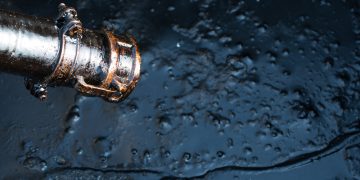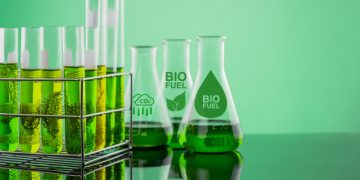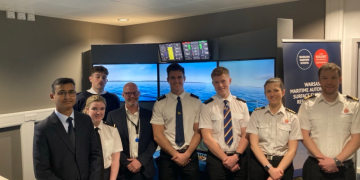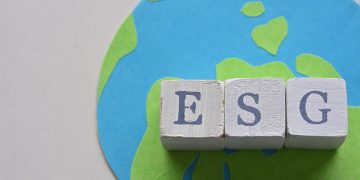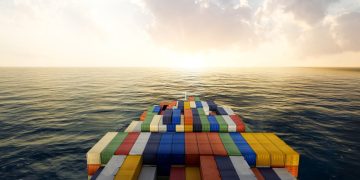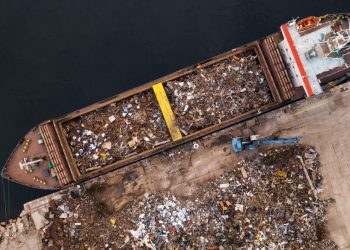Developing countries hold the key
 In late 2007, following an unprecedented ordering boom, the orderbook for very large gas carriers (VLGCs) of 70-85,000 cubic metres stood at 51 vessels.
In late 2007, following an unprecedented ordering boom, the orderbook for very large gas carriers (VLGCs) of 70-85,000 cubic metres stood at 51 vessels.
At the time there were only 112 VLGCs in service but the promise of a surge in Middle East LPG exports prompted gas carrier owners to throw caution to the wind and embark on their newbuilding spree. The paucity of shipyard building berths slots at the time exacerbated the rush to contract new vessels.
As has often happened in similar situations in the past, the bubble soon burst. On this occasion it was a particularly painful plummet back to earth. The credit crisis of September 2008 quickly gave way to a global economic slump and, in addition, the projects to develop new Middle East LPG production capacity suffered major delays. On top of this the production of crude oil, and hence LPG, went into decline.
The payback for VLGC owners came in the form of plunging freight rates as an already overtonnaged fleet was augmented by a steady feed of newly commissioned ships. These returns, which barely covered operating expenses, were to remain at desultory levels for the next 18 months. In the continued absence of sufficient cargoes four VLGCs were put into cold layup between March and May 2010.
The upswing did not come until summer 2010 when a spate of West-East arbitrage cargoes and strengthening LPG exports from the Middle East Gulf increased the call on available tonnage. Even so, the turnaround was more in the form of a modest uptick than a full-blooded rebound. The Baltic Index marker for VLGCs – 44,000 metric tonnes (mt) of LPG on the Ras Tanura/Chiba route – averaged USD 35.2 per metric tonne (pmt) in 2010 compared to USD 22 pmt in 2009.
Going forward, the prospects for the VLGC fleet are now better than they have been for three years. Ship supply and demand have come into better balance and Middle East LPG exports are finally beginning to climb. Interest in Gulf LPG is being supported by the growing use of the gas as a petrochemical feedstock worldwide. A resurgent petrochemical industry is searching for cheaper alternatives to naphtha feedstock and Middle East LPG is poised to meet this need.
The pace of VLGC fleet expansion slowed in 2010 as the large orderbook continued to be whittled down. Nine VLGCs were delivered last year compared to 39 such vessels in the 2008-2009 period. Although the turnaround in the freight market last year has prompted renewed interest in newbuilding orders, gas carrier owners in general are now a chastened bunch and the level of new contracting has been modest. The two VLGCs that were ordered in August 2010 were the first newbuilding contracts for such vessels in two years and the reported price of US$75m per unit was almost $20m less than when the last orders for these vessels were placed in 2008.
A total of four VLGCs were ordered over the course of 2010, while contracts have been placed for an additional five vessels so far in 2011. The current VLGC orderbook stands at 16 vessels due to be completed between 2011 and 2013. The goal of achieving a better tonnage balance across the fleet has also been facilitated by the removal from service of older vessels. During the course of 2010 six VLGCs were sold for recycling.
In terms of newspaper headlines the current year, so far, has been one of surprises and many of the events continue to evolve. As the full effects of the Japanese earthquake, the Eurozone crisis and the so-called Arab Spring are still to be worked out, it is difficult to predict the future with any degree of accuracy.
Nevertheless, the fundamentals for VLGCs going forward are sounder than they have been for some time. The key driver of the growth in the seaborne movement of LPG is Middle East output. Gulf exports approached the 30 million tonnes per annum (mta) level in 2010 and are set to jump another 20% in 2011 as new production capacity comes on stream in Qatar and the UAE, principally Abu Dhabi. Middle East exports account for approaching 50% of the global trade in LPG.
Saudi Arabia produces 22 mta of LPG and although Saudi LPG output continues to inch upwards, more and more of the volume is being utilised domestically as a petrochemical feedstock and export shipments are dropping. The volume despatched overseas is currently running at the 9 mta level and the country remains the world’s leading LPG exporter. That said, Qatar and Abu Dhabi will be competing for the distinction within the next 12 months.
The combined LPG exports of Abu Dhabi and Qatar approached the 14 mta mark in 2010 and both countries are poised for rapid growth in overseas shipments over the next few years. By 2015 Abu Dhabi is expected to be exporting LPG at a rate of 11.5 mta while Qatar’s shipments should be at the 10 mta level.
Qatar’s rapid climb up the LPG exporters’ league table comes courtesy of increased LNG output. Over the past two years the Gulf nation has commissioned six Super Trains, each capable of producing 7.8 mta of LNG, pushing the country’s aggregate LNG production to the 77 mta mark and making Qatar’s the world’s leading LNG exporter by a wide margin.
Each day each Super Train produces 23,000 tonnes of lean LNG, 48,000 barrels of oilfield condensate, 7,000 barrels of plant condensate, 1,300 tonnes of propane, 800 tonnes of butane and 466 tonnes of molten sulphur. Qatari LPG exports reached the 5.5 mta level in 2010, up from 3.3 mta in 2009. Furthermore exports are set to reach the 8.2 mta mark this year and then climb slowly to a plateau level of 10 mta by 2015.
If all the planned increases are achieved, aggregate Middle East LPG exports will reach the 45 mta mark in 2015, a leap of 50% on the 2010 level.
Against this backdrop of rapid growth in Middle East LPG production, the big question remains. Will there be sufficient demand for LPG worldwide to keep the VLGC fleet suitably occupied? Two encouraging factors are the increasing use of LPG as a petrochemical feedstock and as an additive for lean LNG, to boost the fuel’s calorific value, at the point of consumption.
Ultimately, however, developing countries hold the key. The drive by less industrialised nations to switch their current sources of domestic fuel to LPG will continue to be the principal factor underpinning the growing demand for the clean-burning fuel worldwide.
Source: BIMCO, Mike Corkhill




